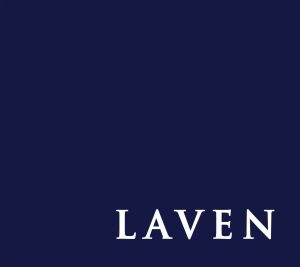The Fifth Anti-Money Laundering Directive (5AMLD) came into effect on the 10th January 2020 and serves to address new issues that have been exposed since the Fourth Anti-Money Laundering Directive which came into force back in 2017. It is a European Union (EU) legislation with the aim to strengthen the barriers in the battle against money laundering and terrorist financing. The directive notes that this new legislation is, in part, a response to the terror attacks that have happened within EU member states over the past few years namely in Britain, France and Belgium. It is worth noting that the 5AMLD has not made any changes to penalties that are in place for breaches, however, the scope of firms/individuals who will be caught by the regulation has widened.
The FCA is the regulator of the financial services sector in the UK and has been granted the powers by the Government to be the national registrar for all active crypto firms in the UK. The register is a requirement coming out from the EU and as the title suggests, it ensures that crypto firms conduct Anti-Money Laundering (“AML”) checks where required under the law (and the guidelines). Despite Brexit, we have transposed 5MLD into UK law.
Newly established cryptoasset businesses that intend to carry on a cryptoasset activity must be registered with the FCA before they undertake any such activity.
The FCA requires firms to submit applications to be registered and that application will provide evidence as to the policies and procedures that the applicant applies to its business to identify and prevent financial crime from occurring. Each of the EU countries is obliged to do the same for crypto firms operating in their country.
5 Key Elements of the Legislation
This article will explore the 5 key elements of this new Anti-Money Laundering (AML) legislation:
1. Beneficial Ownership
The new regulation imposes greater transparency on the financial sector regarding beneficial ownership with a focus on the beneficial ownership of trusts. A firms data on beneficial owners will be made accessible to competent authorities (i.e. the FCA), and professional sector service providers, such as banks and others who can demonstrate a legitimate interest. The same information can be accessed by any member of the public without the need to demonstrate a legitimate interest. This puts further obstacles on a preferred method of money laundering globally as part of the Client Due Diligence process.
2. Extending the Scope
5AMLD extends AML/CFT obligations to new assets being managed such as:
- Virtual Currencies: increasing the scrutiny on virtual currencies and extending the scope of AML/CTF controls in 4MLD to virtual currency providers, to notably prevent anonymity. Anonymous safe deposit boxes will also no longer be allowed. This includes
- Cryptoasset Exchance Providers – businesses that exchange fiat currency for a cryptoasset or vice versa, and/or exchanges one cryptoasset for another.
- Cryptoasset Auomated Teller Machines (ATM): physical kiosks that exchange cryptoassets and fiat currencies.
- Custodian Wallet Providers.
- Peer to Peer Providers – businesses that provide an online marketplace to allow the exchange of cryptoassets and fiat currencies.
- Issuers of New cryptoassets, such as Initial Coin Offerings (ICO) or Initial Exchange Offerings (IEO) – businesses that sells a new cryptoasset in exchange for fiat currency.
- Custodian Wallet Providers.
- Art Traders: When dealing with high-value artwork that results in a transaction of €10,000 or more, art traders will have to report suspicious activity and perform checks on customers when necessary.
3. PEP (Politically Exposed Persons) Clarification
The Member States must issue a list of specific functions which qualify as “prominent public functions” to make sure individuals who are potential PEPs are identified for monitoring. The EU will then consolidate the lists from the Member States and publish the results keeping the individual’s identities anonymous.
4. Enhanced Due Diligence for High-Risk Third Countries
The EU currently maintains a list of High-Risk third countries, and when doing business with clients within these countries, parties are required to undertake enhanced due diligence measures. One of the new updates that the 5AMLD brings, is that any client that is based in a High-Risk country is now subject to compulsory enhanced due diligence measures, of which the ‘relevant person’ must undertake. These include obtaining information on the source of funds, background checks and beneficial ownership to name just a few. Member States may also prevent firms from opening branches or subsidiaries in high-risk third countries and prevent the opening of a branch or subsidiary of a firm based in a high-risk third country.
This change aims to harmonise the rules concerning high-risk jurisdictions across the Member States. The EU hopes to ensure greater coordination and encouragement of firms to limit relationships with these countries.
5. Prepaid Cards
The threshold for prepaid instruments (e-money & prepaid cards) subject to due diligence has been lowered from €250 to €150.
5AMLD and Laven
At Laven, our consultants are on hand to help identify the actions your firm needs to take to ensure you are compliant with new regulations and aware of all the risks outlined in this report. Whether this is through assisting with new policies and procedures that need to be put in place or providing online/in-person training for staff to make them fully aware of the regulatory burden.
Laven has also built Laven Tech, a unique Regulatory Technology (RegTech) solution that leverages advanced technology combined with our vast subject matter expertise. Our RegTech solution is designed to assist fund managers, service providers and investors to meet today’s growing demands.





